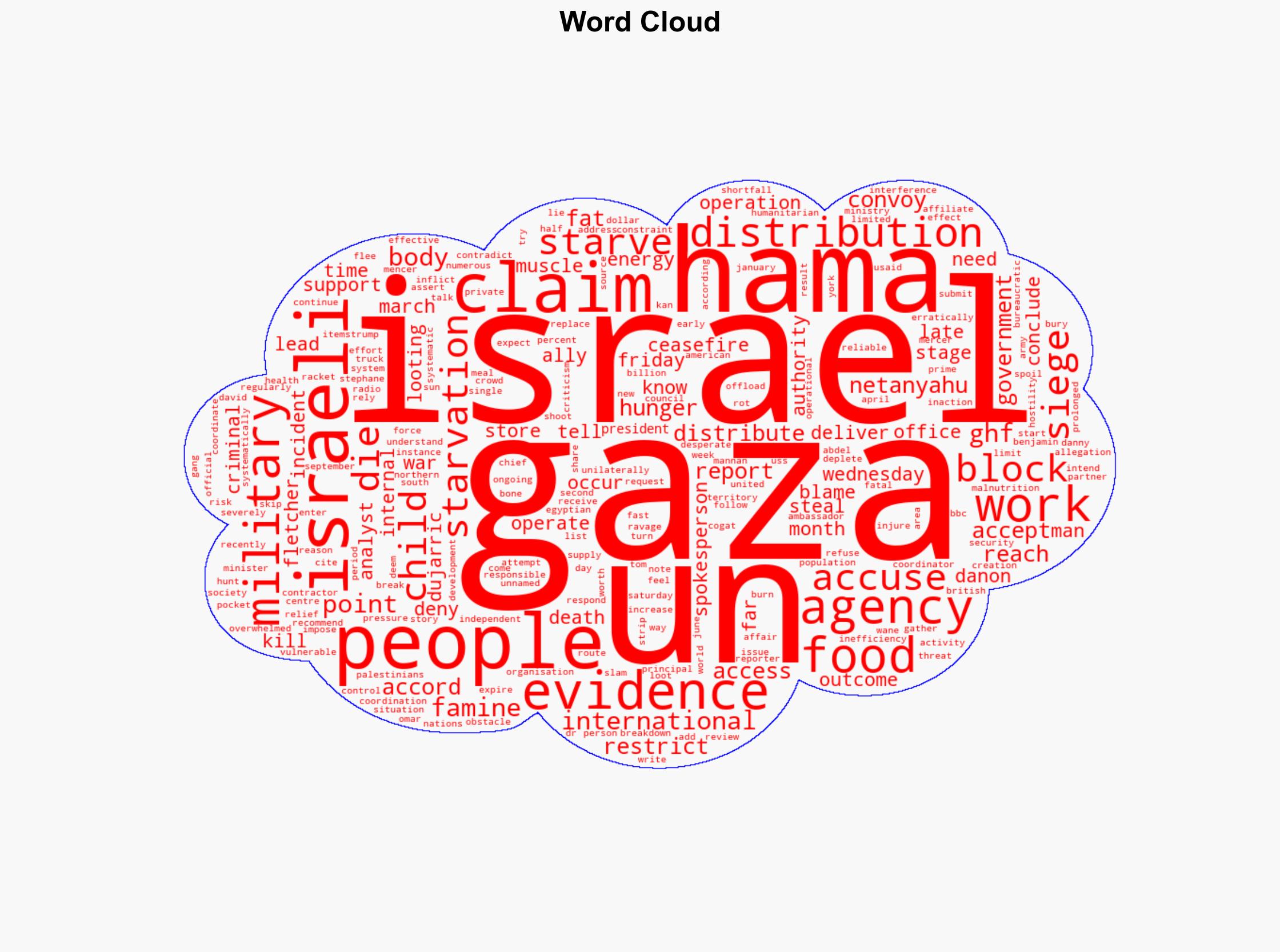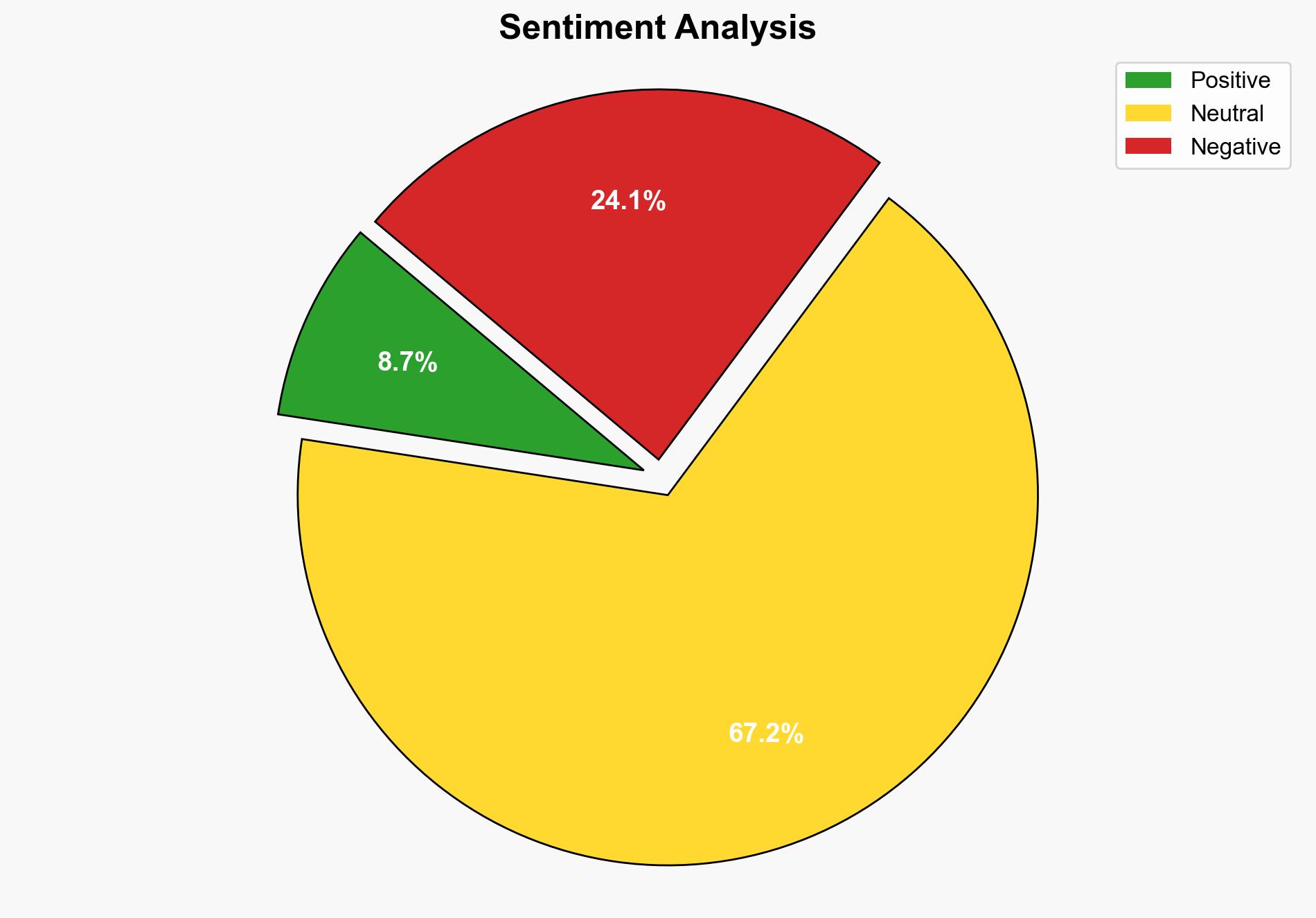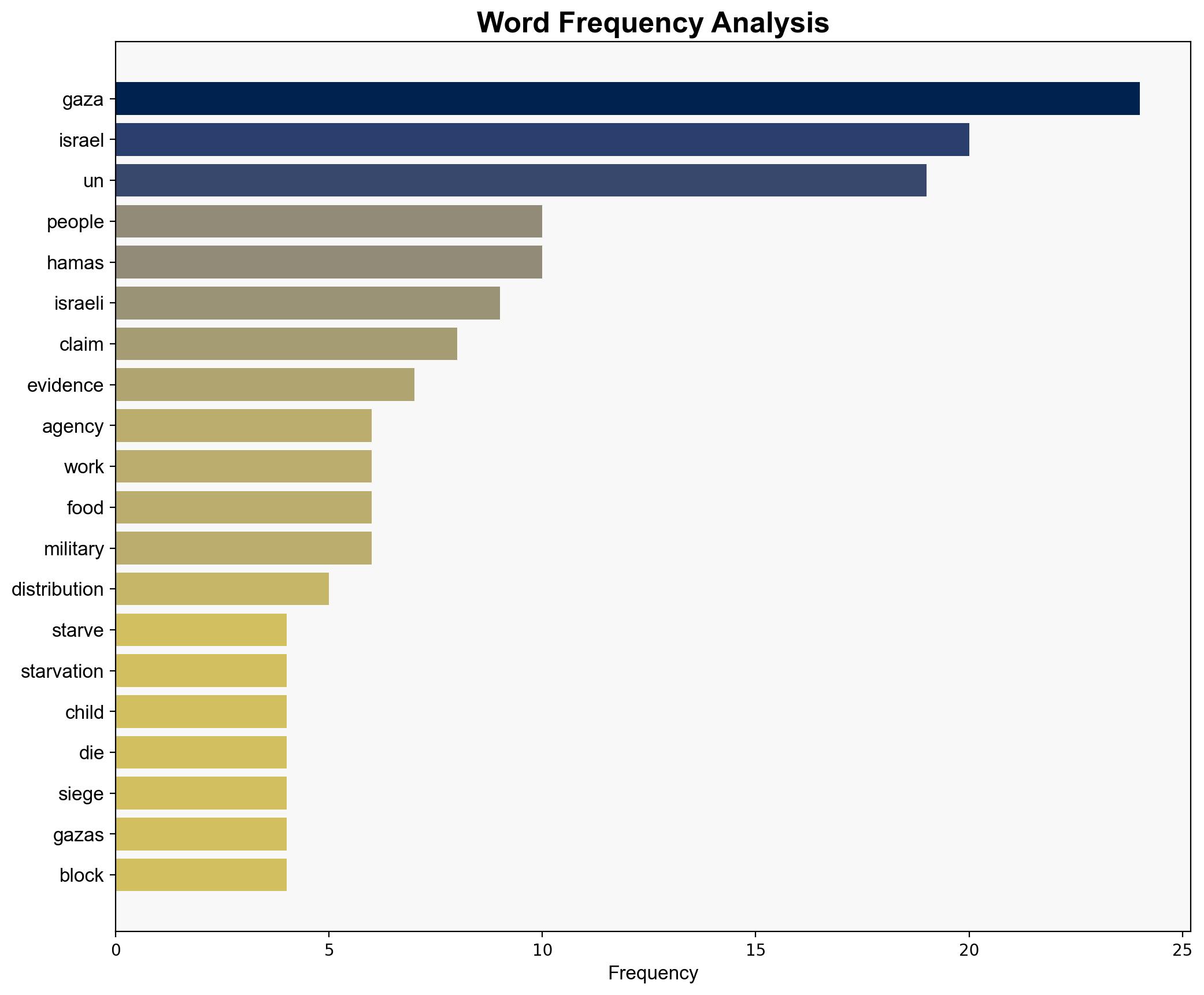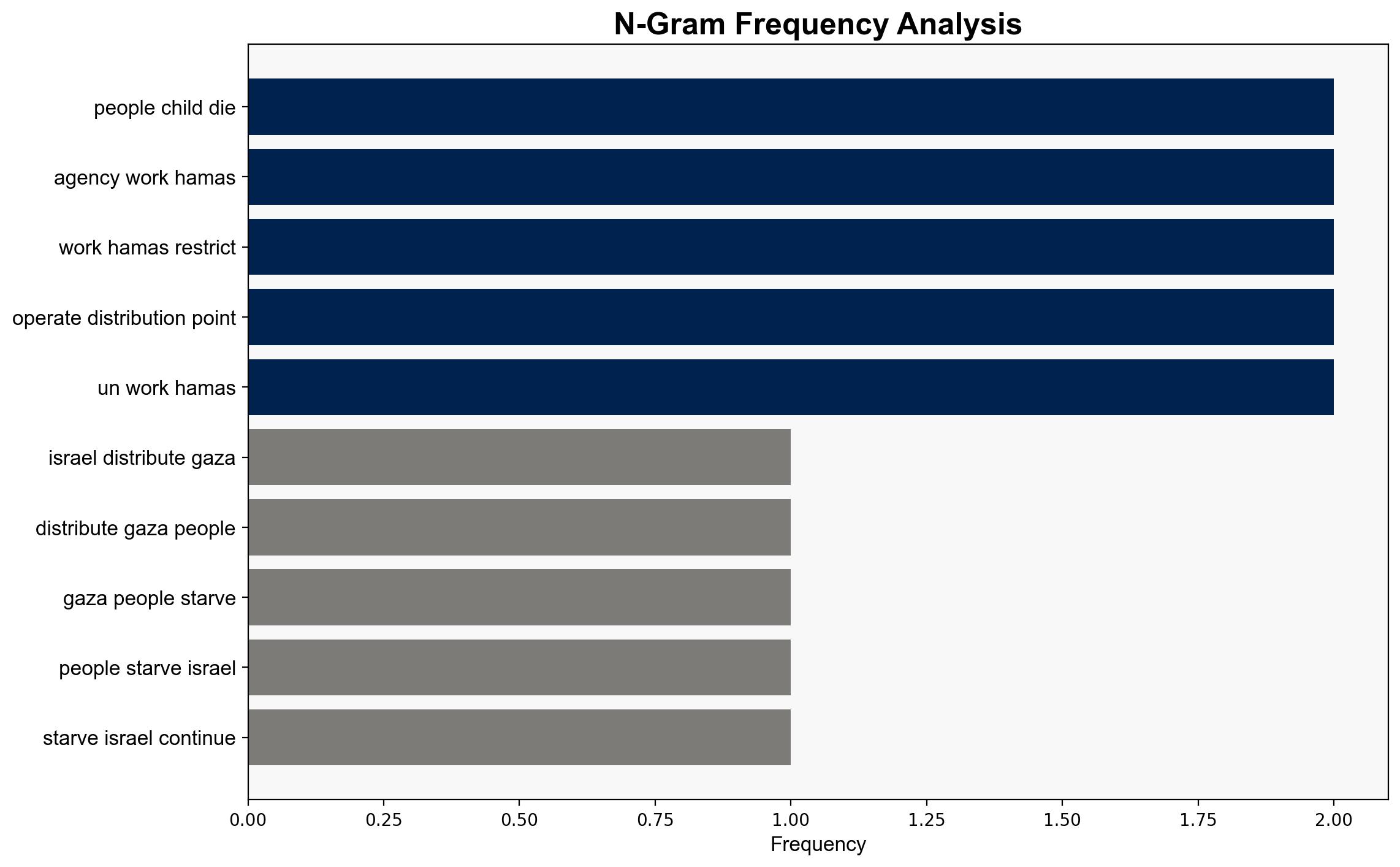Israel says its distributing aid in Gaza so why are people starving – Al Jazeera English
Published on: 2025-07-26
Intelligence Report: Israel says its distributing aid in Gaza so why are people starving – Al Jazeera English
1. BLUF (Bottom Line Up Front)
The most supported hypothesis is that logistical and political challenges, including Israeli restrictions and inefficiencies in aid distribution, are contributing to the humanitarian crisis in Gaza. Confidence level: Moderate. Recommended action: Engage in diplomatic efforts to facilitate more effective and transparent aid distribution channels, involving neutral international bodies to ensure accountability and efficiency.
2. Competing Hypotheses
1. **Hypothesis 1**: Israeli restrictions and political motives are primarily responsible for the humanitarian crisis in Gaza, with aid being used as a tool to pressure Hamas.
– **Supporting Evidence**: Reports of Israeli blockades, accusations of aid being a political tool, and claims of Israeli military actions against aid convoys.
2. **Hypothesis 2**: Inefficiencies and corruption within aid agencies, potentially exacerbated by Hamas interference, are the main causes of the aid distribution failures.
– **Supporting Evidence**: Accusations against UN agencies of inefficiency and alleged collaboration with Hamas, as well as reports of aid theft by criminal elements.
3. Key Assumptions and Red Flags
– **Assumptions**:
– Hypothesis 1 assumes Israeli actions are primarily politically motivated.
– Hypothesis 2 assumes significant corruption and inefficiency within aid agencies.
– **Red Flags**:
– Lack of independent verification of claims from both sides.
– Potential bias in reporting from involved parties.
– Inconsistencies in reports about the extent of aid reaching Gaza.
4. Implications and Strategic Risks
– **Humanitarian Impact**: Continued starvation and malnutrition could lead to increased mortality and social unrest in Gaza.
– **Geopolitical Tensions**: Escalation of conflict between Israel and Hamas, potentially drawing in regional and international actors.
– **Economic Consequences**: Prolonged instability could disrupt regional trade and economic activities.
– **Psychological Effects**: Heightened animosity and radicalization due to prolonged suffering and perceived injustices.
5. Recommendations and Outlook
- Facilitate third-party oversight of aid distribution to ensure transparency and efficiency.
- Encourage diplomatic dialogue between Israel and Palestinian authorities to address humanitarian needs.
- Scenario Projections:
– **Best Case**: Effective international mediation leads to improved aid distribution and reduced tensions.
– **Worst Case**: Escalation of conflict results in widespread humanitarian disaster and regional instability.
– **Most Likely**: Continued intermittent aid with ongoing political and logistical challenges.
6. Key Individuals and Entities
– Benjamin Netanyahu
– Danny Danon
– Tom Fletcher
– David Mencer
– United Nations
– Hamas
– GHF (Gaza Humanitarian Fund)
– USAID
7. Thematic Tags
national security threats, humanitarian crisis, regional focus, geopolitical tensions





